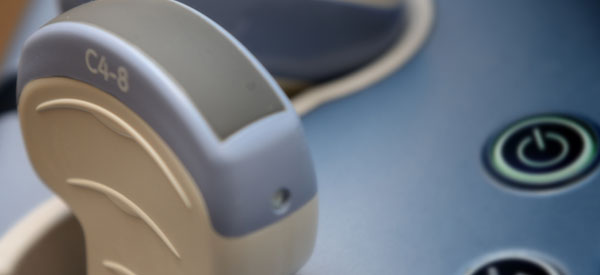Frequently Asked Questions
(FAQs)Q: Who is a high risk patient?
A: A pregnancy can be considered high risk either because of maternal issues or concerns with the unborn baby. Some examples of high risk maternal conditions include maternal age over 35, high blood pressure, diabetes, heart disease, autoimmune diseases such as lupus, kidney problems, blood clotting problems, obesity or a prior pregnancy with complications such as early birth, preeclampsia or pregnancy loss. Issues with the unborn baby can also lead to a high risk pregnancy such as abnormalities, multiple gestations, abnormal growth, or a genetic problem.Q: Can I refer myself to SCMFM?
A: Our goal is to work with you and your primary provider during your pregnancy. We request that you work through your provider for an appointment in our office. If you have questions about this please call us at 719-622-3442.Q: Do you deliver babies?
A: We have extensive experience managing complicated pregnancies and delivering babies. However, our goal is to provide diagnostic services such as ultrasound examinations, outline a plan of care if indicated and support your physician in performing your delivery.Q: Do you do 3D ultrasound?
A: Yes. We have state of the art ultrasound equipment and experienced ultrasound technicians performing your ultrasound. We will attempt to obtain a 3D image and provide this for you. Please understand this may not always be possible due to the position of the baby, the size of the mother or if the pregnancy is far along.Q: Do I need to have a full bladder for my ultrasound?
A: No. We are usually able to complete the ultrasound without a full bladder.Q: What is a first trimester screen?
A: A first trimester screen is offered to all pregnant women, regardless of age. An ultrasound measurement of the thickness of the skin behind the neck is measured between 11-14 weeks of pregnancy. This measurement is combined with a blood test to estimate the chances that the baby has Trisomy 21 (Down’s Syndrome), Trisomy 18 or Trisomy 13. A “normal” test does not mean that the baby is completely normal. The test will return as “abnormal” if the chance of Trisomy 21 is higher than that of a 35 year old. If the test returns abnormal, the results will be explained to you to determine if any additional testing is recommended.Q: When will my doctor get the ultrasound report?
A: We will send the report by fax to your doctor’s office within 24 hours and usually the same day you are seen. We may call your doctor immediately if we think the findings need to be discussed with them. It is our priority to communicate in a timely manner with your doctor.Q: Should I call your office if I am having an obstetric problem or an issue to discuss?
A: We recommend that you discuss your concerns with your obstetrician first. If you are having an emergency, you should call 911.Q: Will I see a doctor during my ultrasound?
A: An experienced high risk sonographer will perform your ultrasound. During most ultrasound examinations you will have an opportunity to talk with the MFM doctor about your ultrasound.Q: Who can I bring to my ultrasound appointment?
A: An obstetric ultrasound is a thrilling experience for patients and their families. We ask that you remember it is also a medical procedure requiring concentration and attention to detail from the sonographer. Too many people in the room can be disruptive to his or her ability to perform the study. We also know you are excited to share the baby’s gender, but we ask that everyone in the room please put away their cell phones until the examination is completed.Q: Will I get pictures of my baby?
A: Yes. We will provide you with printed photos of your baby and a DVD of the images. We do not allow videotaping of the examination.
Southern Colorado MFM
Social Media
© Copyright 2013, Southern Colorado Maternal Fetal Medicine
6071 E. Woodmen Rd., Suite 440| Colorado Springs, CO 80923 | Phone : 719.622.3442 | Fax: 719.622.3434


